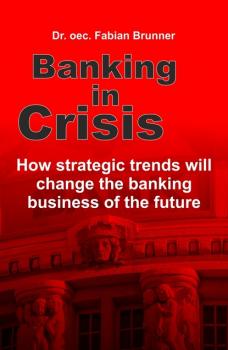Fabian Brunner
Список книг автора Fabian BrunnerClimate Change – A Law Of Nature
Instead of adapting to the changing climate, all the relevant groups in German society have joined forces to combat climate change. No attempt has been made to avoid technical efforts or costly measures. The energy transition and the Green Deal have tremendous consequences for the state, society and individuals. Public debate has tended to ignore these consequences and has failed to consider the cost.
Dr. Fabian Brunner analyses the mode of operation of the energy transition and comes to the conclusion that it has set in motion a spiral that will fundamentally transform the German economic system rather than the global climate. Not only the climate has «points of no return» after which interventions will no longer be possible. This also applies to the economy – when these points have been passed, it will no longer be possible to prevent an ext- reme loss of prosperity for future generations.
Banking in Crisis
In the foreseeable future, banks as we now know them will cease to exist. In view of the increasingly digital banking business, the pressure on costs and the reduction in vertical integration, the banking industry in the future will be characterized by technologization and specialization and threatened by the influence and capabilities of the BigTechs. There will need to be drastic changes in the competitive situation, the value creation structures and business models of the banking industry; despite the protection provided by banking supervisors and governance regulations, the core functions of banking – the handling of payment transactions and financing – are no longer the unique key functions that have made the banking industry indispensable within an economy to date. The perfect storm seems to be brewing; as Bill Gates already said in 1994 "banking is necessary, banks are not”. Banks around the world are striving to find an adequate response. This book starts by providing a well-founded theoretical basis and then analyses the situation, identifies the present shortcomings and problem areas of the banks and outlines possible approaches to solutions.

